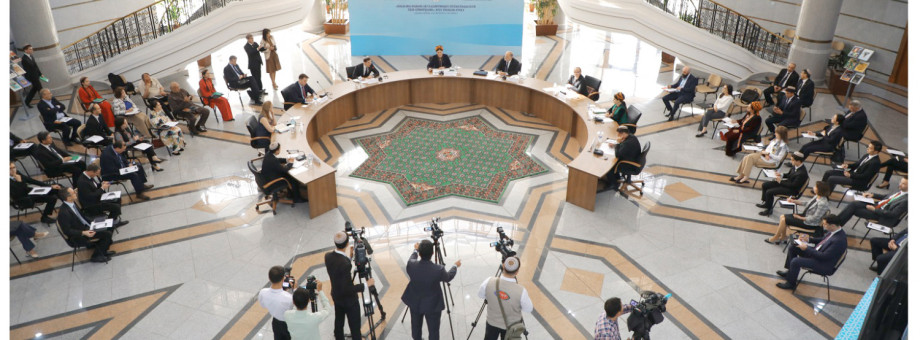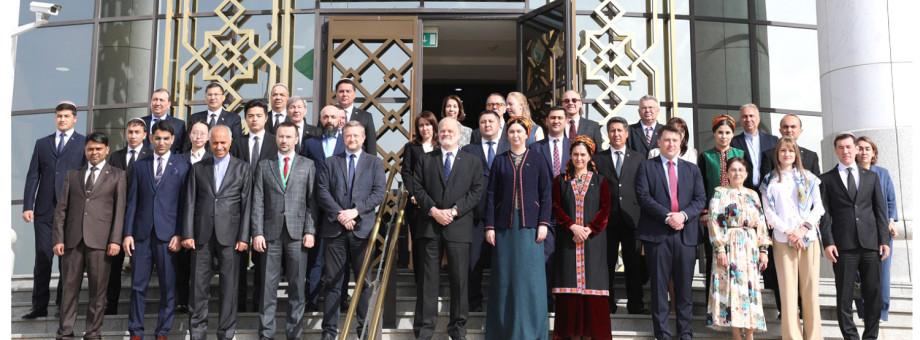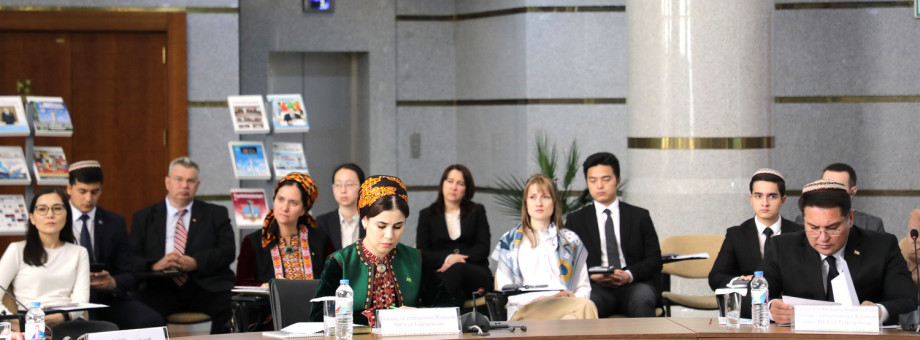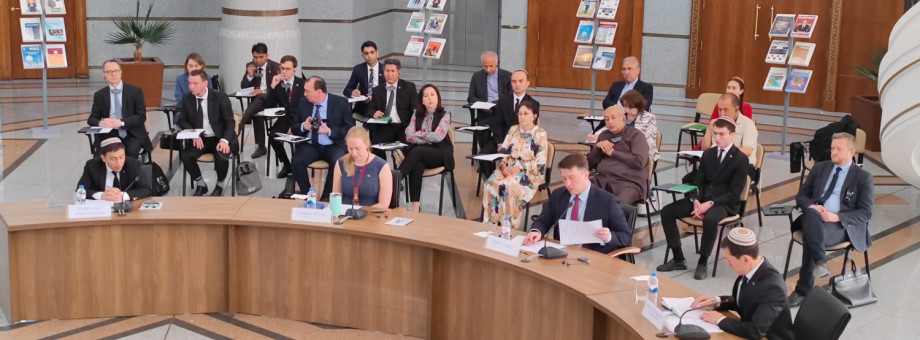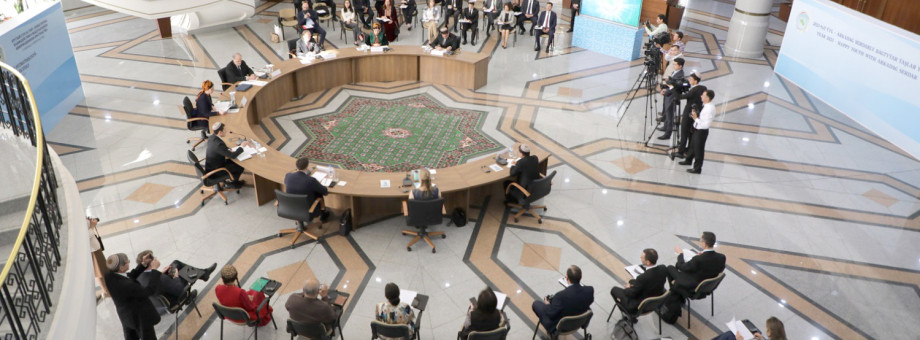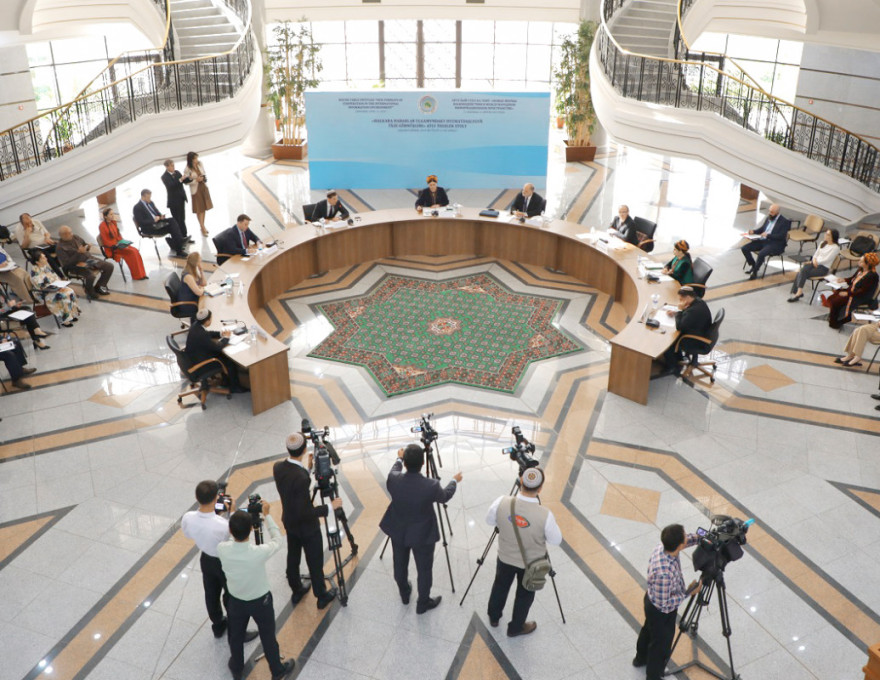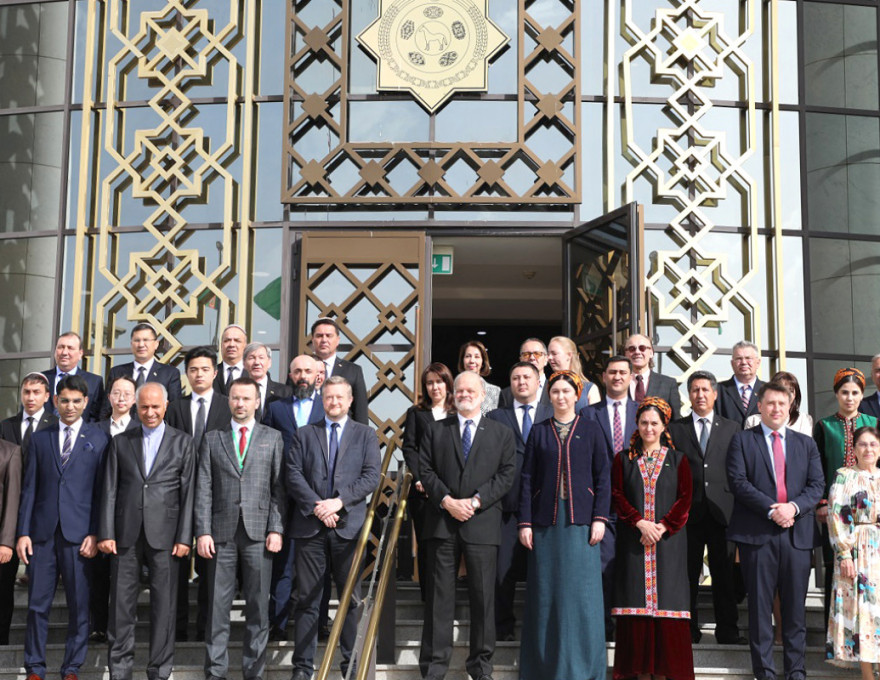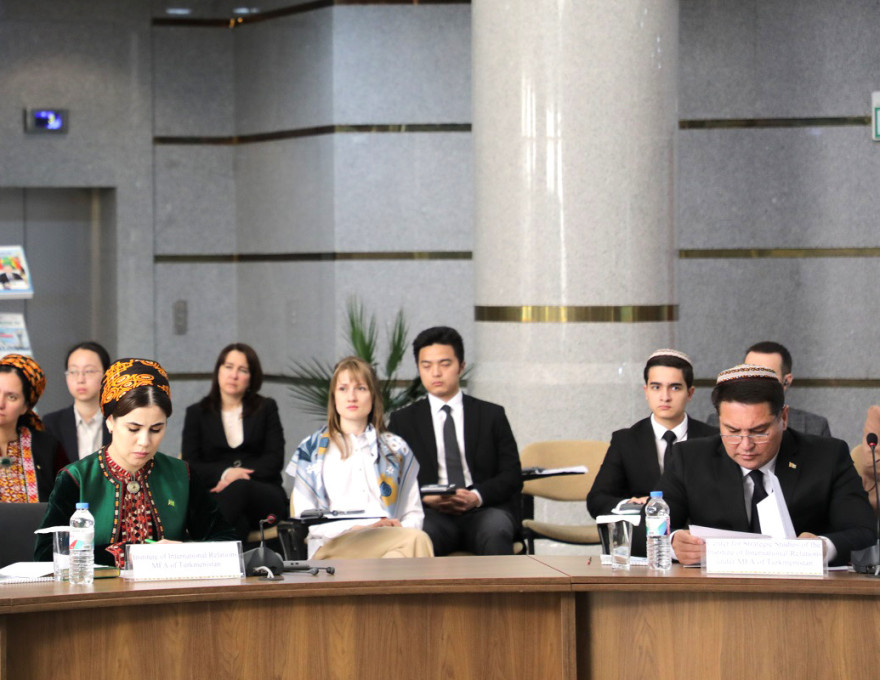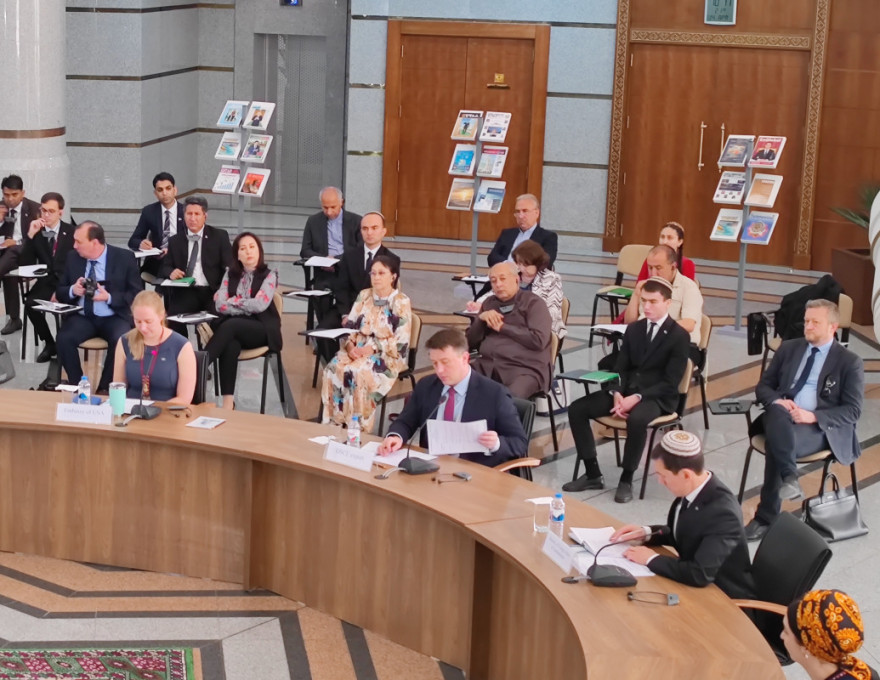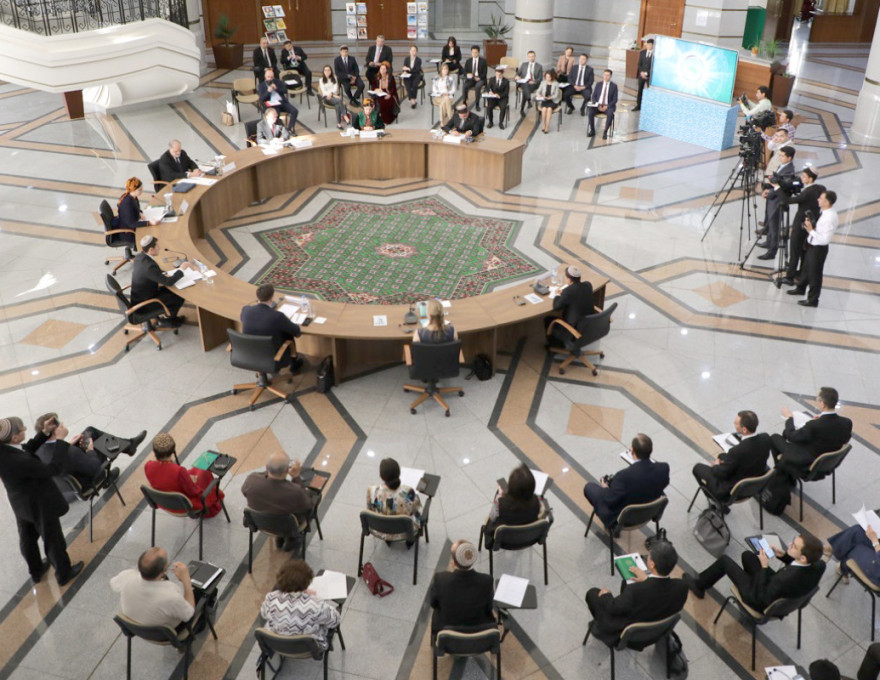PRESS RELEASE ON THE ROUND TABLE "NEW FORMATS OF COOPERATION IN THE INTERNATIONAL INFORMATION ENVIRONMENT"
Today, on April 14, 2023, a round table was held at the Institute of International Relations of the Ministry of Foreign Affairs of Turkmenistan on the topic “New formats of cooperation in the international information environment”.
The event was attended by representatives of international and national media, private media, relevant ministries and state agencies of Turkmenistan, press attaches of diplomatic missions accredited in Turkmenistan, experts and specialists in the field of information and communication policy, as well as teachers and students of the Faculty of International Journalism of the Institute of International Relations.
In frames of an extensive agenda, various aspects and directions of international information activities were discussed.
Opening the round table, the Deputy Minister of Foreign Affairs of Turkmenistan Myahri Byashimova noted the important role played by the outlet in the modern media space. In this context, she stressed that the current format of interaction is a platform for discussing the importance of the mass-media in establishing links in the international information field, aimed to bridge positions.
It was stated that the Government of Turkmenistan sets priority tasks for the domestic media sphere. Today, there is a need for more active promotion in the global digital space of up-to-date and reliable information about Turkmenistan, news reports on the transformations and achievements taking place in the country, studying the best world experience, the emergence of new formats and standards of broadcasting, print, and electronic press. Along with this, the expediency of further improvement and activation of the activities of private media in Turkmenistan was noted.
Particular attention was drawn to the initiatives of the President of Turkmenistan Serdar Berdimuhamedov regarding regional cooperation in the media space, announced at the 4th Consultative Meeting of the Heads of State of Central Asia.
In particular, was told about the illegal use of information technology, the implantation from the outside of ideas and attitudes that run counter to the historical traditions of the peoples of Central Asia, the basic values and centuries-old foundations of their life.
In this regard, a proposal of the head of the state to make joint efforts so that Central Asia remains a zone of stability and trust, not subject to risks for peace and development, was commented
In this context, the idea of holding a Central Asian media forum dedicated to security issues with the participation of state news agencies, print media, and electronic media has been put forward.
The head of the OSCE Center in Ashgabat, Ambassador John MacGregor, during his speech noted that media development issues are high on the agenda of the Organization. At the same time, this "round table" is a vivid example of constructive cooperation between the Government of Turkmenistan and the OSCE Center in Ashgabat in the field of media development. The initiative to hold the current forum in Ashgabat testifies to the growing role of Turkmenistan in promoting commitments within the OSCE and, thus, shows the desire to take an active position in the international media space.
The work of the “round table” continued in the framework of two sessions devoted to the issues of information sustainability in the 21st century and information policy in the context of the widespread development of social networks. During the sessions, with the active participation of OSCE international experts Marek Bekerman and Yakub Parusinski, an exchange of views took place on such topical issues of our time as the role of the state in creating a sustainable information space, aspects of media literacy in society, the development of information awareness among youth, issues of tackling misinformation and fake news, as well as the importance of education and continuous professional development of journalists in countering the above-mentioned challenges and problems in the media field.
Participants noted the important role of social networks and PR technologies in the modern digital information space, as well as issues of interaction between the state and media communities. In this context, aspects of the effective use of social networks as an important tool for communication and cultural exchange were discussed.
At the end of the sessions, interactive communication was held in the "question-answer" format, during which a thorough and constructive exchange of views took place on issues and topics on the agenda of the forum. Great interest was shown in the educational process and creative work of the future generation of journalists studying at the Institute of International Relations.
The participants of the "round table" noted the role and constructive activities of Turkmenistan in matters of close cooperation with all stakeholders in the region and beyond in the information and communication sphere.
The parties also viewed the exhibition of specialized foreign policy publications, deployed on the sidelines of the "round table".


 HABERLER
HABERLER
